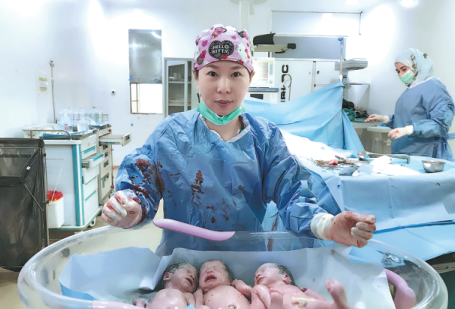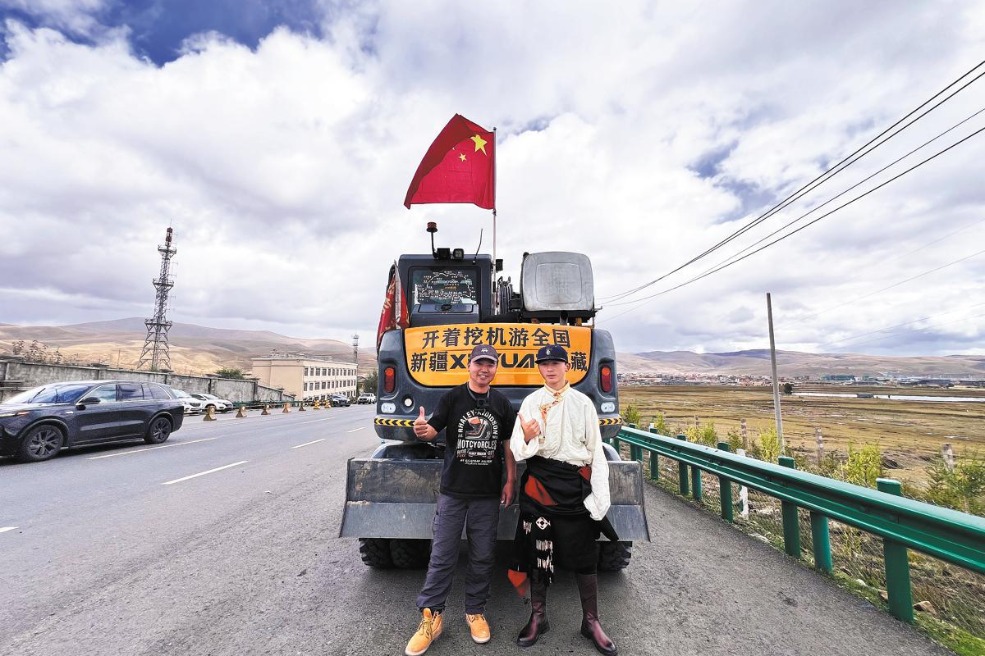Doctor gains fulfillment through Algerian stint


Li enrolled to be a member of the medical team in June 2016, and she soon embarked on an intensive six-month quest to learn French.
More Chinese doctors today may consider the possibility of working abroad as China's global influence grows. However, adapting to life abroad is never an easy thing to do, and the language barrier is always the main obstacle.
"We met a dedicated French teacher during the course, and through my continuous efforts, I could cope with simple communication by the end of the course. I also learned some medical terminology in French which turned out to be very useful," Li said.
With seven other doctors, Li took a flight to Algeria in March 2017. They were assigned to different departments at the Centre Hospitalo-Universitaire de Setif, a major hospital in Setif in the east of Algeria. Li began mission work the moment she arrived.
"Working there was completely different from working at my hospital in Xiangyang, Algerians have a different view of childbirth than the Chinese. They do not get abortions, and some of them prefer cesarean sections. These were the things that kept us busy, and there were surgeries almost every day," she said.
Li helped to deliver more than 10,000 babies. It takes Li an hour to finish a C-section in China, while the duration to complete one was much shorter in Algeria. Li set a record by finishing an operation within 20 minutes, and that kind of efficiency won the admiration of her Algerian colleagues.
"In the beginning, they were a little skeptical about whether I could handle all these surgeries, but I soon reassured them with my performance. Sometimes, I needed to perform more than 10 operations a day. I had to seize the day because there were always many women waiting for the operations," Li said.
In addition to providing diagnoses and surgeries, Li and other members of the team had to teach local medical professionals advanced medical skills, and this helped change some of the obsolete medical techniques and ideas in childbirth that had always existed among the local doctors.
"We have successfully carried out many highly complicated surgeries for the locals, and the mortality rate of mothers in Setif was significantly reduced through our joint efforts," she said. "But we were constantly under pressure due to a lack of equipment. Algeria needs to invest more in its hospitals."
Li's constant devotion earned the gratitude of the Algerian people, and they gave her the title of "excellent worker" before she left.
Although life in Setif was quite fulfilling, Li sometimes felt a bit of homesick. "Different dietary habits were one of the biggest challenges for me when I worked there," she said. "When I ate Algerian food for the first time, it evoked my nostalgic feelings of home."
Li is hoping for another opportunity to work abroad, and she said she had gained valuable experience from her time in Algeria, and that might guide her through bad days.
"There may be times when everything will appear too difficult to manage," Li said. "But the entire journey will turn out to be the most rewarding experience of my life."
- 'Ice City' warms up for winter Games
- China takes lead in global growth of IP
- Infrastructure restored in aftermath of Dingri earthquake
- Chinese actor located safely after disappearance on Thai-Myanmar border
- Universities open subsidies for students affected by earthquake
- China to improve intellectual property rights





































